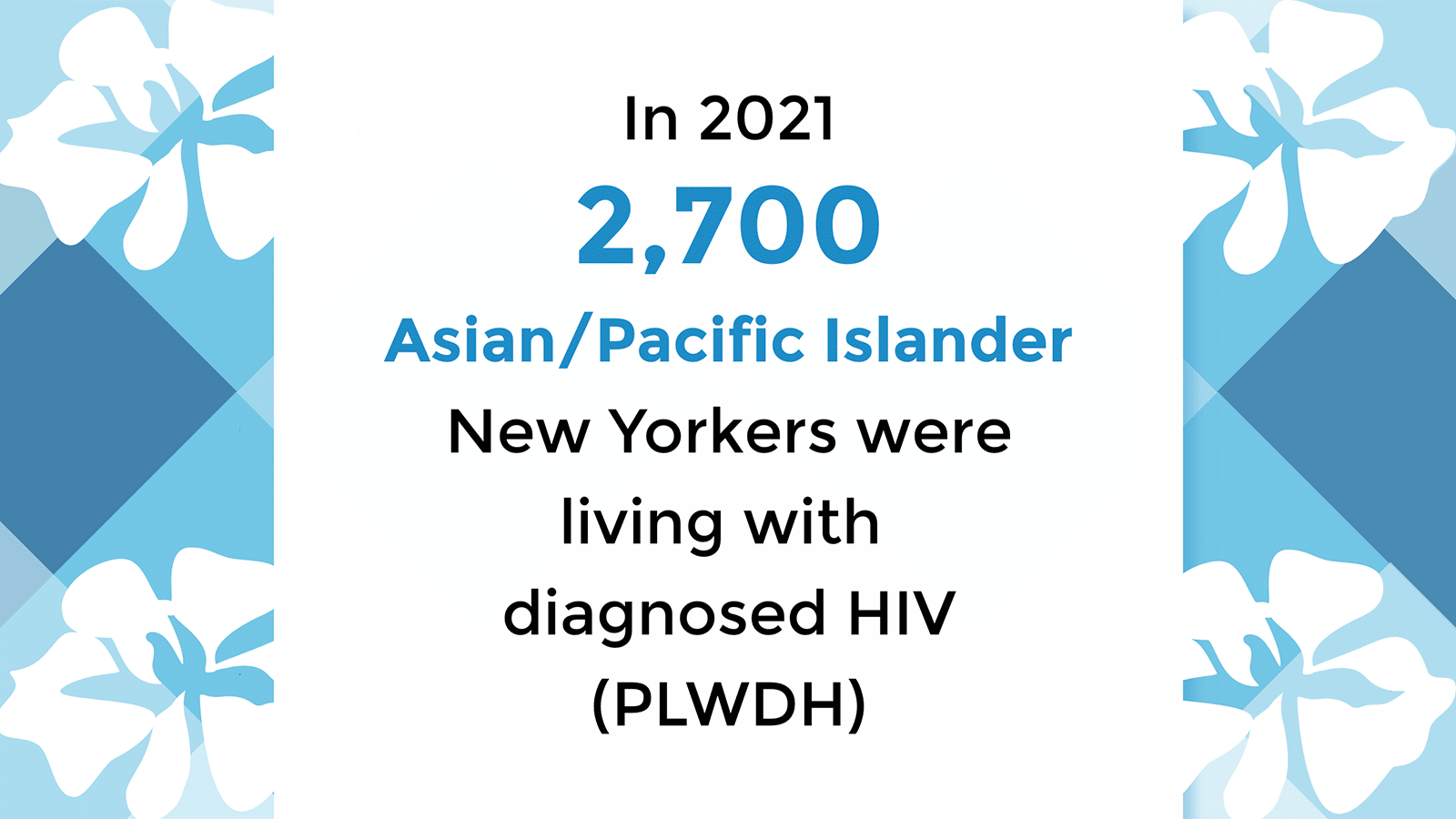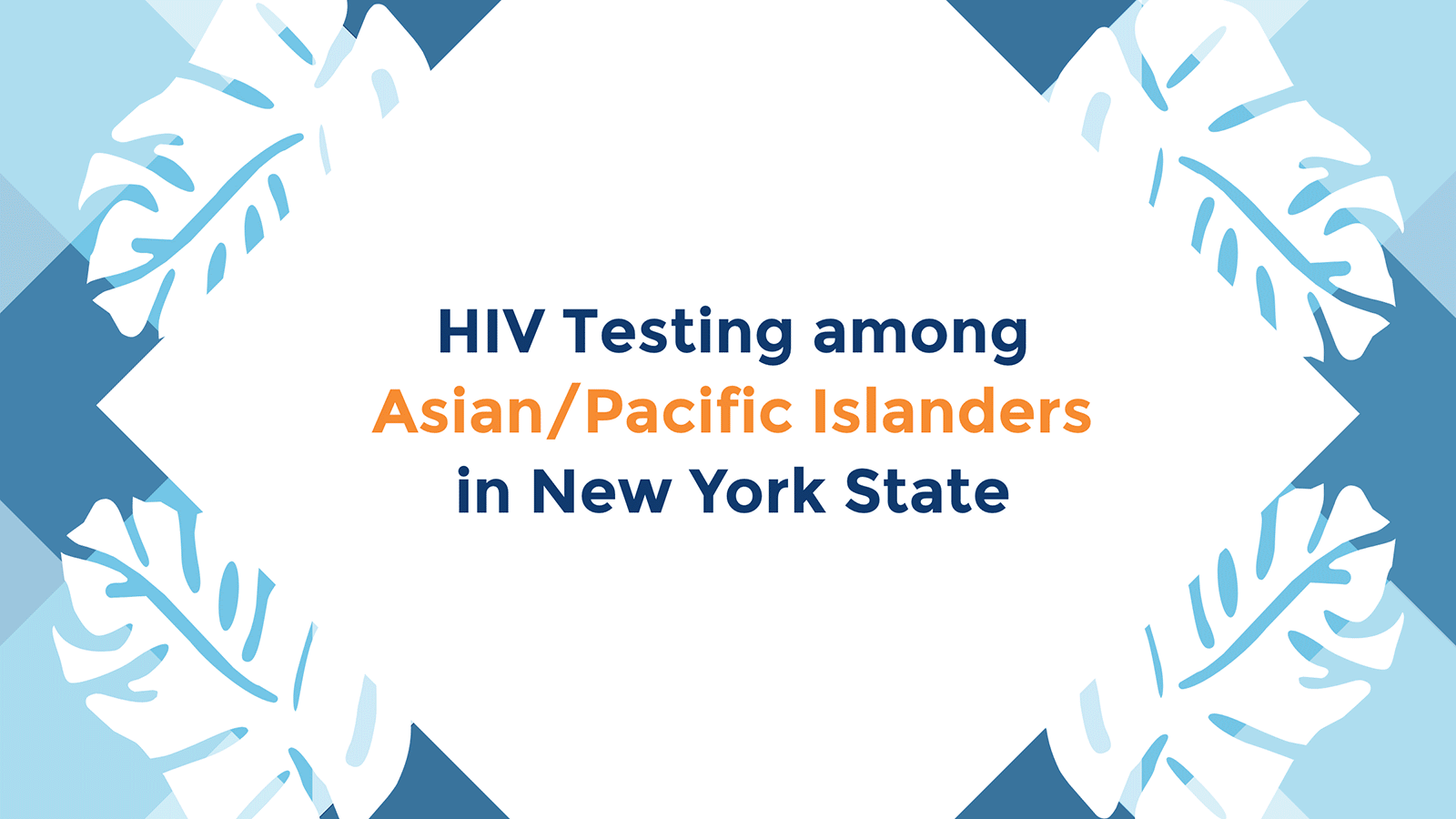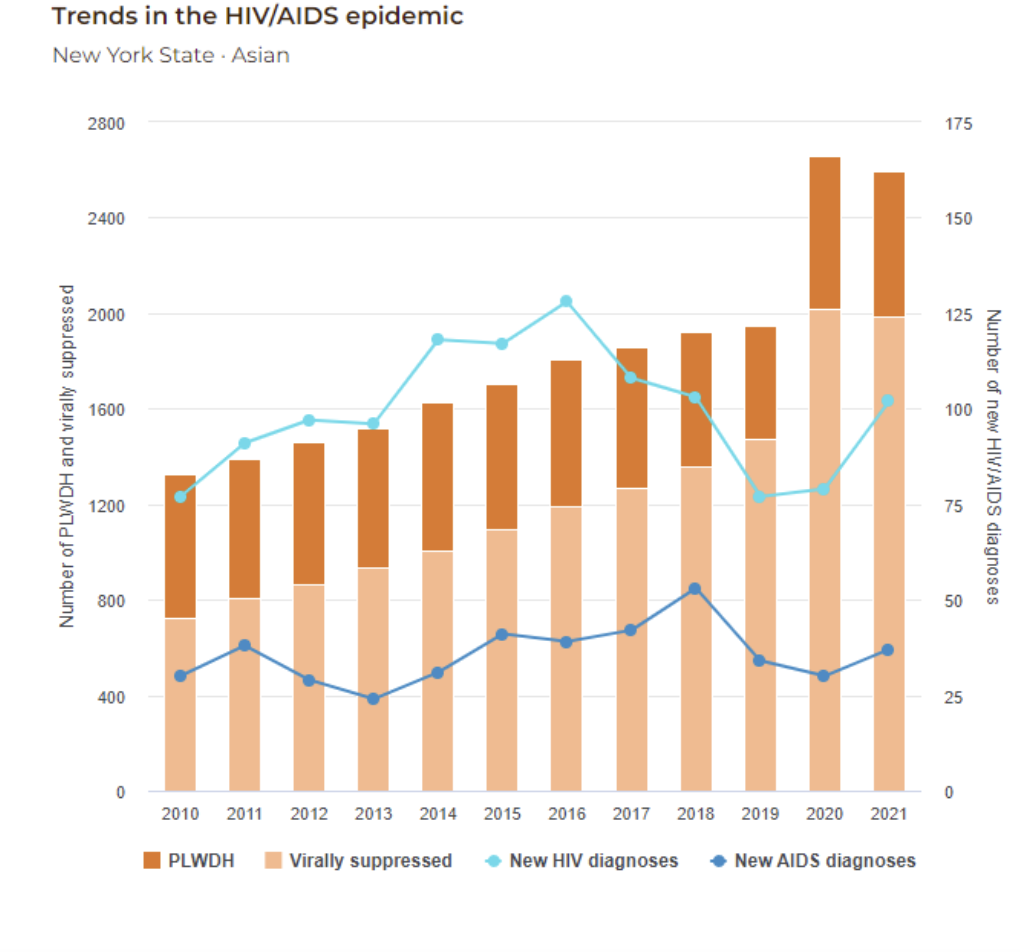National Asian and Pacific Islander HIV/AIDS Awareness Day
May 19 is National Asian and Pacific Islander HIV/AIDS Awareness Day, dedicated to raising awareness about HIV/AIDS and the impact of HIV/AIDS-related stigma on Asian and Pacific Islander communities. In 2021, there were 2,700 Asian and Pacific Islander New Yorkers living with diagnosed HIV.

In 2021, 5% (102/2,123) of all new HIV diagnoses were among Asian New Yorkers, of which 90% were men (92/102). Of the 102 new diagnoses, 22% were concurrent HIV/AIDS diagnoses. Consistent with higher proportions of concurrent HIV/AIDS diagnoses, only 7.6% percent of Asian/PI New Yorkers reported being tested for HIV in the past 12 months, compared with 11.9% statewide among all persons in 2021. More frequent testing allows people to learn their status earlier which can help prevent late and concurrent HIV/AIDS diagnoses.
Addressing Barriers to Testing and Care:
Asian and Pacific Islander communities experience unique challenges to accessing and utilizing HIV prevention, testing, and treatment. Language and cultural barriers, along with limited access to healthcare, can create significant challenges for Asian and Pacific Islander individuals seeking HIV testing and care services.

To address these barriers and improve access to HIV testing and care, New York State (NYS) outlines some key evidence-based guidelines in the NYS ETE Blueprint. Recommendations 4-8 of the ETE Blueprint specifically concentrate on engaging and retaining people living with HIV and those at risk, emphasizing the need to tailor these resources appropriately for their target populations. To cater to the Asian and Pacific Islander community, it is imperative to ensure cultural sensitivity and the availability of language support. Additionally, community-based organizations are recognized for their valuable role in offering free or low-cost HIV testing, counseling, and prevention services tailored to the specific needs of Asian and Pacific Islander communities. View more data related to HIV testing here (NYS and NYC).

ETE community stakeholders have prioritized the need to address health inequities and social determinants of health so that NYS accomplishes the goals of the ETE Initiative. Key recommendations from the NYS ETE Beyond 2020 addendum underscore that cultural, social, and economic factors, along with language barriers, discrimination, and limited access to healthcare, contribute to the HIV landscape in these communities. To effectively address these factors, the addendum highlights the need to implement tailored approaches that respect cultural nuances and empower individuals to actively seek testing, prevention, and care services.
Promoting Awareness and Education:
National Asian and Pacific Islander HIV/AIDS Awareness Day serves as an opportunity to promote awareness and education surrounding HIV/AIDS in these communities. On this day, let us recognize the unique challenges faced by Asian and Pacific Islander communities and draw focus on HIV/AIDS-related stigma and health disparities in order to work towards reducing the overall impact of HIV/AIDS in these communities.
Stay informed on HIV/AIDS trends in New York State here
